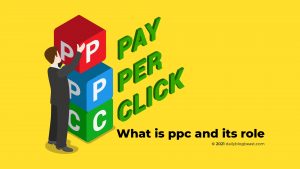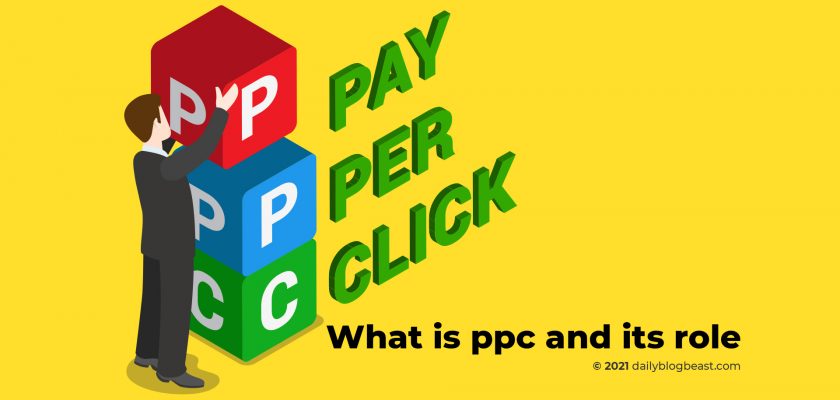One of the most difficult aspects of entering into the industry of digital marketing is that many of the professions are not as “typical” as other occupations. They frequently lack formal training, certificates, or degrees, making it difficult to know where to begin if you want to enter into the field.
They also have an odd combination of abilities that can vary from highly imaginative to highly analytical. PPC (Pay Per Click) advertising might be an interesting place to start if you’re searching for a new sector to investigate in digital marketing. To give you a sense of what to expect in this market sector, here’s a glimpse at a day in the life of a PPC Specialist.

A PPC’s Function
A PPC Specialist oversees pay-per-click advertising campaigns on the internet, including strategy, design, execution, SEO, and ad performance analysis. It’s a difficult job that’s also in great demand since running a successful PPC campaign necessitates a specific skill set. The following are some of the primary responsibilities of a PPC Specialist:
Keyword research:
A PPC Specialist must have a thorough understanding of how consumers search for any product or service. You must stay current with industry trends, regularly research and test your keyword selections, and be willing to modify them if you are not seeing results.
Designing a landing page:
Clickers will be directed to a landing page where you will have a few seconds to engage and please them. Successful PPC specialists reveal the skill of perfecting great landing sites. All of your efforts will be for naught unless you have a solid landing page.
Trend-spotting may be a full-time job in and of itself. When you’re not perfecting your campaigns, keep up with SEO trends and learn how to beat Google’s ever-changing algorithms. You’ll need close contact with your customers to know what they’ll respond to and what technology is driving them every day.
“PPC mixes the creativity of marketing… with the science of signage,” says Stephan Sarandrea, Director of Strategy for the PPC provider Siteflood.
That addresses the PPC Specialist’s creative mind, but mastering the art of PPC necessitates so much more. You’ll be balancing a variety of attributes throughout the day, including:
Analytical:
As previously said, you will spend a significant amount of time attempting to determine what performs best for your campaigns. As a result, an analytical mind is required to look at the figures and evaluate the information in order to optimize the success of your campaign.
Organization and time management are needed in most careers, but as a PPC Specialist, you will be responsible for a variety of activities that take longer to complete than in other careers. Specifically, tracking the results of your advertising while conducting thorough research to stay on top of trends. To make sure you don’t forget anything, you’ll need a huge to-do list and a large day planner.
Understanding HTML and JavaScript, decoding, tracking, and retargeting codes, and the right use of tags are only a few of the technical components of PPC management. You must also comprehend technology from a user’s perspective in order to stay up with the newest browser, device, and other developments.
Creativity: The success of your marketing will be guided by your creative thinking. You must create captivating material and incorporate inventive pictures within a tight space. “Each ad is fairly small,” says Sarandrea, “so you’ll have to be frugal with your use of space.” To enhance your click-through rates, you must use emotions and FOMO (fear of missing out). That is the job’s principal purpose.
Consumer Understanding:
In order to ascertain client intent, you must first understand your brand and the business(es) you serve. You’ll be able to find the best placements, keywords, and text for your display advertising this way.
PPC’s Psychology
In PPC, a competent PPC Specialist recognizes the relevance of language psychology. It will be the driving force behind your day-to-day investigation and search for new approaches to create click-throughs. The smallest variation in the way you write your advertising can make or break your campaign’s success. As a result, you’ll continually be learning about your campaign’s customers and goals.
The art of persuasion entails a combination of rational reasoning and a small amount of risk-taking, just enough to keep things exciting. You don’t want to elicit too much emotion since it might quickly devolve into a nasty situation. So, know what you’re going to say and how to deliver it precisely.
“The combination… may be really tough to deal with, but it can also be a really gratifying puzzle, not least in part because PPC is so metric-driven!” says Sarandrea. As a PPC Specialist, you’ll have to juggle a lot of things, but it should feel natural and smooth.
Your advertising will need to convey a feeling of urgency, be imaginative and intelligent, and include keywords that can be difficult to place. To entice readers to go through to your flawlessly created landing page, your keywords, text, and images must all work together nicely. You look at your stats as you build each ad or campaign to identify where you can enhance the campaigns.
-You look over your stats as you build each ad or campaign to identify where you can enhance the campaigns you’ve previously declared ready to deploy. It might be a blow to your ego, but a great PPC specialist understands that this is part of the job. You’ll eagerly anticipate making changes to the creative in order to see improved metrics in your next report.
Conclusion:
The pay-per-click is usually related to the first-level search engines (such as Google Ads, Amazon Advertising, and Microsoft Advertising, formerly Bing Ads). Search engines usually allow marketers to offer keyword phrases that relate to their target market and pay for ads (text-based search ads or shopping ads combined with pictures and text). Content sites, instead of using a bidding system, often charge a flat price per click.

